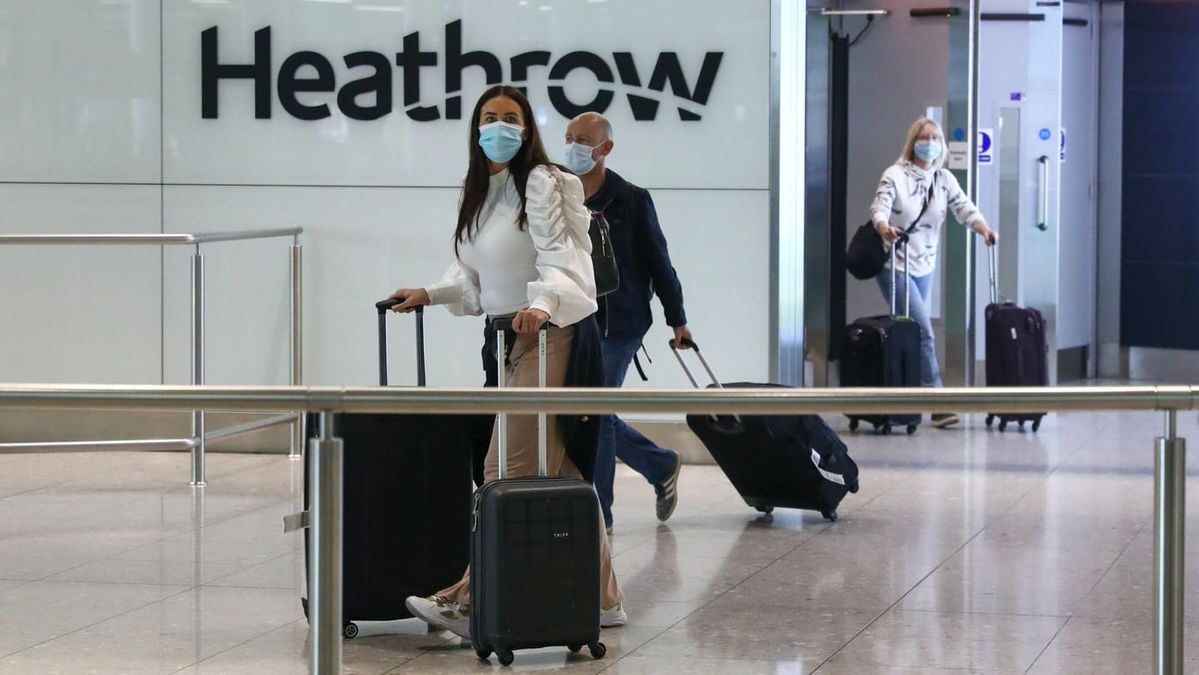UK, US airlines push for restart of trans-Atlantic travel
It's a rare alliance between staunch rivals on the world's richest route.

Airlines from Britain and the U.S. issued a joint plea for the resumption of travel between the two countries, saying government curbs on the world’s most lucrative air route are holding back an economic recovery.
Leisure and business trips could restart without undermining efforts to combat Covid-19, the heads of Delta Air Lines, United Airlines, American Airlines and JetBlue said Monday. They were joined by counterparts from British Airways and Virgin Atlantic, along with business groups and airport executives.
London-to-New York City “is the most valuable bilateral corridor in the world and it seems completely crazy that this is closed at the moment,” said Duncan Edwards, chief executive officer of the trade group BritishAmerican Business.
While carriers have been pitching for a resumption of trans-Atlantic travel since last summer, the latest push comes days before President Joe Biden is set to attend the G7 summit in England.
Virgin Atlantic CEO Shai Weiss said the industry is seeking to reopen travel between the U.K. and U.S. by July 4 at the latest.
Quarantine exemption for vaccinated flyers
Biden’s visit has stirred hopes that talks on a reopening could bear fruit, most likely starting with quarantine-exempt flights for vaccinated passengers.
Prior to the pandemic, London-to-New York was the world’s top route for revenue, generating more than US$1 billion annually. The segment has been all but shut down, despite rapid progress on vaccinations in both countries.
Reopening the corridor would “show that there’s a prize for taking the lead in vaccinations,” London Heathrow CEO John Holland-Kaye said at the event. The airport has said its American passengers normally spend £3.74 billion (US$5.3 billion) a year in Britain, almost a quarter of the total for foreign tourists.
The pace of inoculations has made people increasingly eager to cross the Atlantic, said American Airlines CEO Doug Parker. A reopening between Britain and the U.S. is “a critical next step in both the travel industry and the global economy’s recovery.”
Getting on the green list
Specifically, airlines are lobbying for the U.S. to be included on the U.K.’s “green list” of nations from which passengers can skip quarantine requirements. It currently has amber status, meaning arrivals must self-isolate – effectively snuffing out demand for most trips.
Restrictions are even tougher for flights in the other direction, with only American citizens and permanent residents and their families allowed into the U.S. since March 2020. Biden extended the ban, which has limited exceptions, in a presidential decree issued just after taking office.
Airlines would take about 4 weeks to ramp up their services across the Atlantic once travel is allowed to return, Scott Kirby, United Airlines’ CEO, said on the briefing.
U.K. Transport Secretary Grant Shapps said in April he was in touch with his U.S. counterpart Pete Buttigieg regarding a potential travel corridor between the two countries, though no agreement has yet materialized.
“I urge politicians on both sides to seize the initiative,” said BA CEO Sean Doyle.
“We’ve got momentum, we’ve got a great opportunity. We need to get back up and running and the north Atlantic would be a huge incentive to the industry.”
UK cautious on new coronavirus variants
However, reopening more international travel routes from the U.K. will be “challenging” because the country must do everything it can to protect itself from new coronavirus variants, Health Secretary Matt Hancock said.
Britain last week tightened restrictions on overseas travel, removing Portugal from its so-called green list in a major blow to the airline industry.
Restoring travel in the medium-term is an “incredibly important goal,” Hancock told parliament on Monday, but he added: “It’s going to be hard.”
The “biggest challenge and the reason this is so difficult is that a variant that undermines the vaccine effort obviously would undermine the return to domestic freedom – and that has to be protected at all costs,” Hancock said.
Ministers will be studying data on infection rates and hospitalizations in the days ahead as they weigh up whether to ease England’s remaining Covid-19 restrictions as planned on June 21.
The relaxation has been thrown into doubt by the rise of the highly transmissible delta variant first identified in India.
Hancock also suggested that while proof of vaccination certificates will be necessary for international travel, they might not used domestically.
This article is published under license from Bloomberg Media: the original article can be viewed here